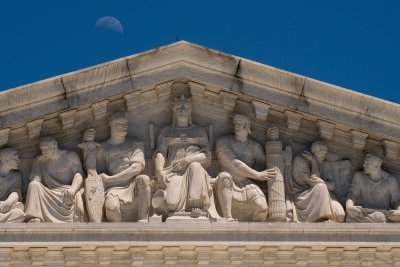
May 30 (UPI) — Legal status in the United States can be lawfully revoked for more than a combined 530,000 Cubans, Haitians, Nicaraguans, and Venezuelans, the U.S. Supreme Court ruled on Friday.
The court only issued an unsigned dissenting opinion acknowledging the federal government can move ahead with its Termination of Parole Process for Cubans, Haitians, Nicaraguans and Venezuelans, commonly referred to as CHNV.
In March, President Donald Trump directed the Department of Homeland Security to revoke the legal status of 532,000 migrants under sponsorship programs, primarily from Cuba, Haiti, Nicaragua and Venezuela.
The migrants were granted legal protected status under former President Joe Biden‘s administration, a program Trump has attempted to wind down amid legal challenges.
A federal judge in Massachusetts last month granted a temporary order blocking Secretary of Homeland Security Kristi Noem from revoking previously-granted parole to the protected migrants.
Earlier this month, Trump asked the Supreme Court to intervene and allow the government to remove protected status.
On Thursday, Boston-based U.S. District Judge Indira Talwani ordered the Trump administration to restart processing applications under the migrant program.
Friday’s Supreme Court ruling returns the issue to the lower courts, giving the Department of Homeland Security the ability to stop processing extension requests from migrants with current legal protections under CHNV while the legal process plays out.
“The Court has plainly botched this assessment today. It requires next to nothing from the Government with respect to irreparable harm. And it undervalues the devastating consequences of allowing the Government to precipitously upend the lives and livelihoods of nearly half a million noncitizens while their legal claims are pending,” the unsigned dissenting opinion states.
Two of the high court’s liberal judges, Justices Ketanji Brown Jackson and Sonia Sotomayor, dissented from the majority.
“Even if the Government is likely to win on the merits, in our legal system, success takes time and the stay standards require more than anticipated victory. I would have denied the Government’s application because its harm-related showing is patently insufficient. The balance of the equities also weighs heavily in respondents’ favor. While it is apparent that the Government seeks a stay to enable it to inflict maximum predecision damage, court-ordered stays exist to minimize-not maximize-harm to litigating parties,” the dissenting opinion states.
Earlier this month, the Supreme Court ruled in a similar fashion when it allowed the Trump administration to revoke special legal protections for nearly 350,000 Venezuelan nationals living in the United States temporarily.